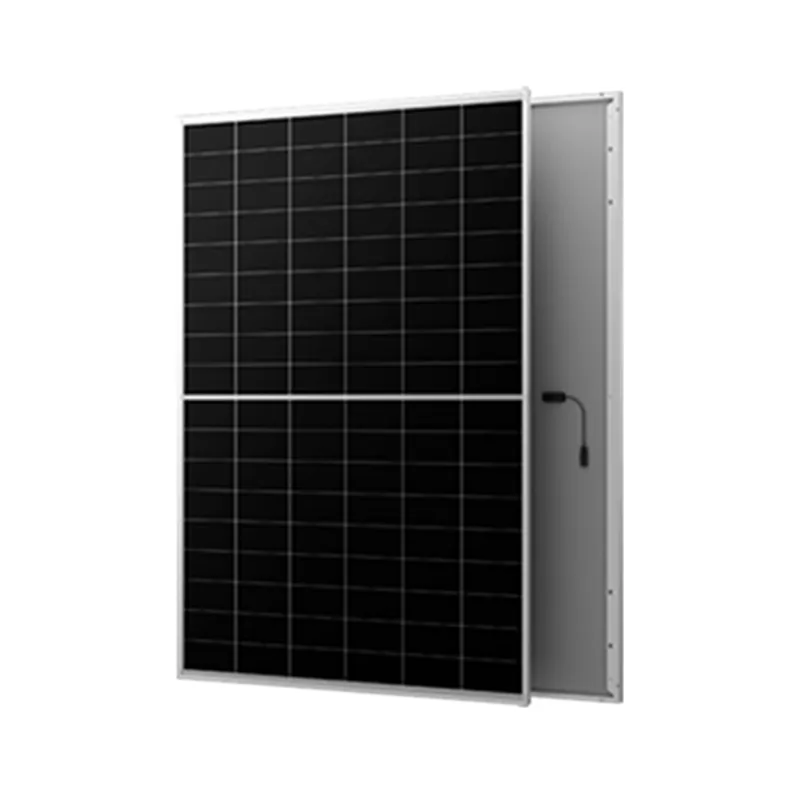3kw solar hybrid inverter
Understanding the 3kW Solar Hybrid Inverter A Comprehensive Guide
As the world shifts towards renewable energy sources, solar power is becoming a practical solution for both residential and commercial applications. One essential component in harnessing solar energy effectively is the solar inverter. Within this realm, the 3kW solar hybrid inverter stands out, owing to its balance of power output, efficiency, and adaptability. This article explores the features, benefits, and applications of the 3kW solar hybrid inverter.
What is a Solar Hybrid Inverter?
A solar hybrid inverter is a device that converts the direct current (DC) electricity generated by solar panels into alternating current (AC) electricity, which can be used by household appliances. Unlike traditional inverters, hybrid inverters can work seamlessly with both the grid and battery storage systems. This dual functionality allows users to store excess energy produced during peak sunlight hours for later use, enhancing energy security and reducing reliance on the grid.
Key Features of the 3kW Solar Hybrid Inverter
1. Power Output The 3kW rating signifies that the inverter can handle loads requiring up to 3000 watts of power at a given time. This makes it suitable for small to medium-sized homes or businesses that have a moderate energy demand.
2. Integration with Battery Systems One of the defining features of hybrid inverters is their ability to work with battery storage systems. This feature enables energy storage during sunny days, allowing users to utilize solar energy even when the sun isn’t shining, such as at night or during cloudy weather.
3. Grid Interaction A 3kW solar hybrid inverter can also be connected to the electrical grid. This ability means that excess electricity generated can be fed back into the grid, often providing the owner with credits or compensation through net metering policies.
4. Smart Monitoring Many modern solar hybrid inverters come equipped with smart monitoring capabilities. This feature allows users to track their energy production, consumption, and battery status via a smartphone app or a web portal, making energy management more efficient.
5. Multiple Operation Modes Hybrid inverters typically offer several operational modes, including grid-tied, off-grid, and backup modes. This versatility guarantees energy access during outages or in areas where grid electricity isn’t reliable.
3kw solar hybrid inverter

Benefits of a 3kW Solar Hybrid Inverter
1. Cost Savings By leveraging solar energy, homeowners can significantly reduce their electricity bills. The ability to utilize stored energy at night or during peak rates further enhances cost savings.
2. Environmental Impact Utilizing solar power diminishes reliance on fossil fuels and reduces carbon footprints, contributing to a more sustainable environment.
3. Energy Independence Having a solar hybrid inverter with battery storage provides users with a greater degree of energy independence, allowing them to utilize solar power regardless of grid availability.
4. Increase Property Value Properties equipped with solar power systems, particularly those utilizing hybrid inverters, often see an increase in value. Potential buyers are attracted to homes with reduced energy costs and sustainable features.
Applications of 3kW Solar Hybrid Inverters
The versatility of the 3kW solar hybrid inverter allows it to serve different applications effectively. Residential homes often benefit from this technology by reducing their electricity bills and improving energy efficiency. Additionally, small businesses can leverage hybrid inverters to manage energy costs, ensuring operational continuity during power outages. Remote locations or off-grid communities also find these inverters beneficial for providing reliable energy solutions without the extensive infrastructure associated with traditional power sources.
Conclusion
In conclusion, the 3kW solar hybrid inverter represents a powerful tool in the pursuit of renewable energy solutions. With its efficient energy conversion, ability to integrate with battery systems, and smart monitoring capabilities, it provides an attractive solution for both consumers and businesses. As the global energy landscape continues to evolve, investing in such technology not only supports a cleaner environment but also promotes energy independence and long-term cost savings. As solar technology advances, hybrid inverters will undoubtedly play a crucial role in the energy systems of the future.
-
String Solar Inverter: The High-Efficiency Solution for Smart Solar EnergyNewsJul.14,2025
-
Revolutionizing Rooftop Energy with the Power of the Micro Solar InverterNewsJul.14,2025
-
Power Independence with Smart Off Grid Solar Inverter SolutionsNewsJul.14,2025
-
On Grid Solar Inverter: Powering the Future with Smart Grid IntegrationNewsJul.14,2025
-
Monocrystalline Solar Panels: High-Efficiency Power for the Future of Clean EnergyNewsJul.14,2025
-
Bifacial Solar Panel: A Smarter Investment for Next-Generation Energy SystemsNewsJul.14,2025







